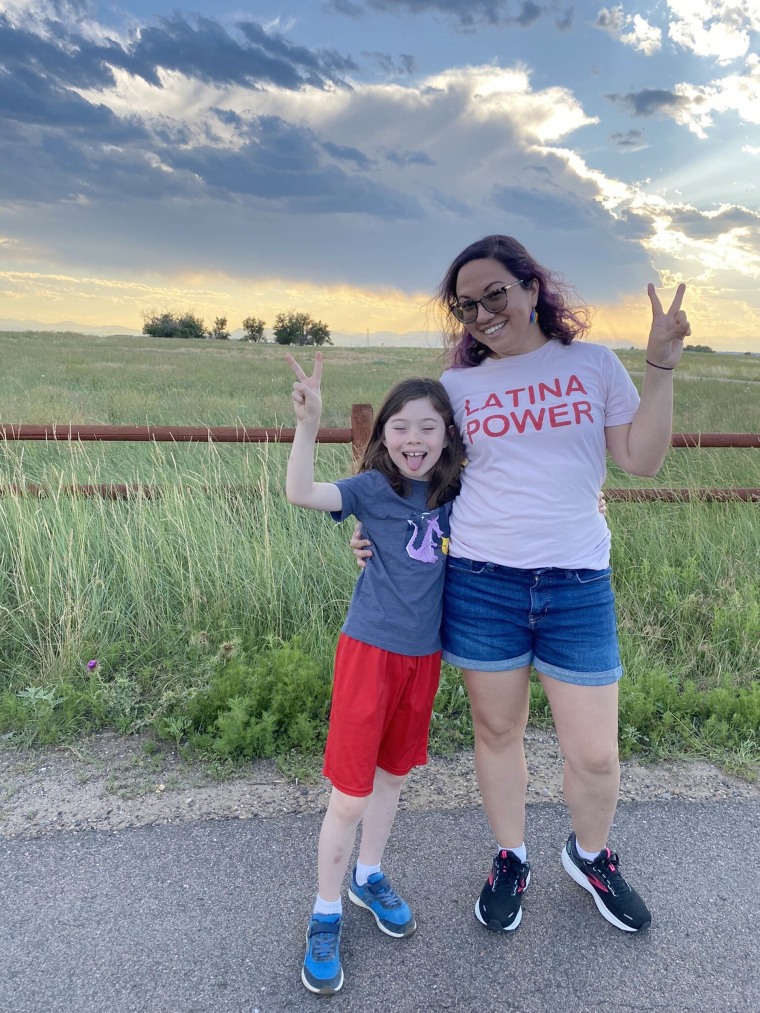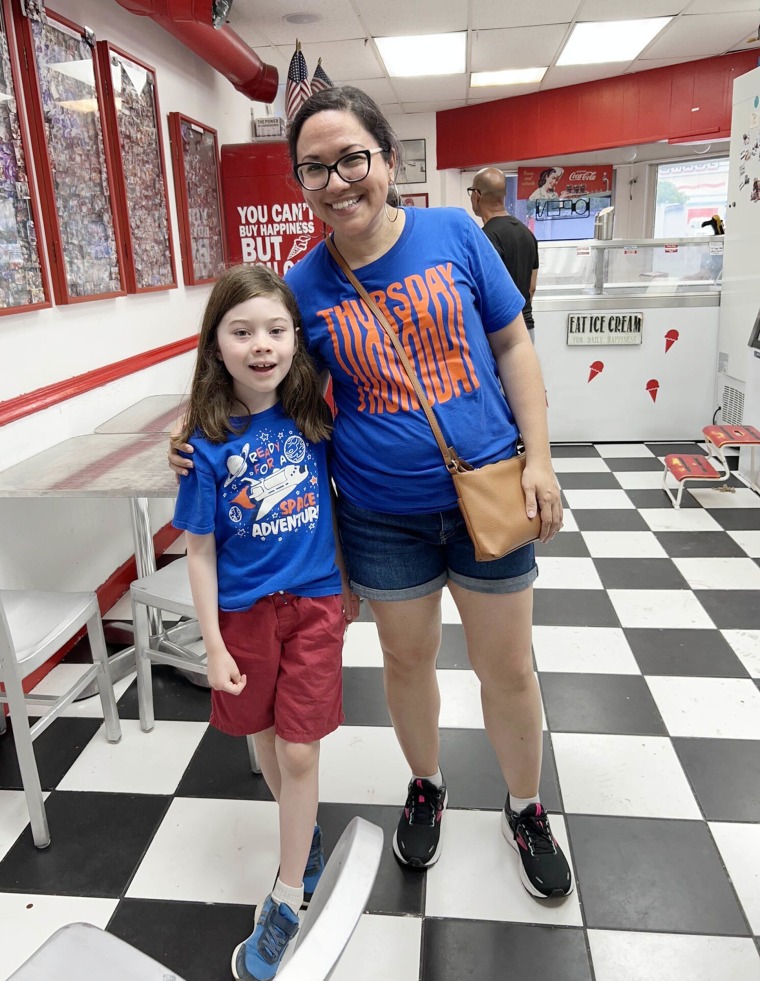Priscilla Blossom, a Nicaraguan- and Mexican-American, grew up speaking Spanish but felt pressured to assimilate and would sometimes only communicate in English.
Now as a mom, she worries that her son, who only speaks English, is missing out on his heritage.
It's common for Latino Americans to not be fluent in Spanish. According to the Pew Research Center, 24% of all Latino American adults say they can “only carry on a conversation in Spanish a little or not at all,” and 54% of non-Spanish-speaking Latino Americans say they’ve been shamed by other Latinos for not speaking Spanish.
"There are just some things — some thoughts, feelings, and sentiments — that simply don’t fully translate, and it makes me sad to think he may never fully understand them."
Priscilla Blossom on why she wants her son to learn spanish
"I grew up in Miami," Blossom, 39, tells TODAY.com. "I'd often go to stores or restaurants where no one spoke English. Spanish was everywhere, so while I learned it from my family it was, frankly, almost a matter of survival to speak Spanish."
Still, Blossom says at times, she would "refuse to speak Spanish" and would only answer her mother in English.
"Despite living in a predominantly Latinx area, there was a lot of self-hate toward Latinidad and toward speaking Spanish," adds Blossom, who's now 39. "Kids would see it as 'lesser than' and had a desire to be 'more American' — meaning more white. That influenced me a lot and prevented me from learning even more Spanish."

Multiple studies, including research from the Center for Comparative Immigration studies at the University of California, San Diego, show that the pressure for Latino immigrant families to assimilate to U.S. culture leads to a decline in Spanish fluency over time.
Esteban Touma, who teaches Spanish for Babbel Live, a language learning platform, says it's "important to emphasize that language is not the main thing that makes you part of the Latino community."
"We are not bound by language," Touma tells TODAY.com. "I think the best thing we can do is emphasize the notion that we do share a history of colonization. We do share a lot of other elements that can help us find a way to unite and communicate in a better way, whether we speak the same language or not."
Still, Touma believes that learning Spanish "allows you to see the world with new eyes."
"It can expand your perception and also help you understand where your parents or grandparents came from," he adds. "It gives you new tools to connect with those parts of your identity."
Blossom says she's "always been fluent" in Spanish, but says it's "been a little choppy" and is "not as good these days."
When her 9-year-old son was 2, her family moved from Miami to Denver, Colorado, and Blossom says she now has virtually no one to speak with in Spanish.
The mom had hoped to raise her son to be bilingual, too, but the move has made it difficult.
"I had no support system and didn't know anyone in town who spoke Spanish," she says. "His preschool was mostly full of white children and teachers and no one spoke Spanish there either."

Blossom's son would attend after-school Spanish lessons "once in a while, when a school offered it," she says, but "sadly he only knows a few words and phrases."
"It's frustrating, because I know if I made the time maybe I could show him more," Blossom says. "But as a busy working parent, it’s not always possible."
While learning Spanish would expand future career opportunities for her son and make it easier for him to travel as an adult, she says she really wants him to learn so he can better communicate with his family.
"I would love for him to get to connect with the Spanish-only speaking family members he has in Nicaragua he has yet to meet," she says. "There are just some things — some thoughts, feelings, and sentiments — that simply don’t fully translate, and it makes me sad to think he may never fully understand them."
Touma says it's common to feel frustrated when learning or trying to teach a child another language, especially when someone is "feeling shame or inadequate for not being able to speak the language of their heritage."
"The first step is just to try to be a little bit more immersed, while knowing that knowing the language does not inflict on your own identity and your ability to form a community," he says.
I hope that my son continues to try and learn what he can so that he can feel more connected to his identity.
Priscilla blossom, latina mom
Blossom says she didn't realize how important understanding and speaking Spanish was until she moved away from her hometown.
"It's more a point of pride these days," she says — a full circle moment when she thinks back on the pressure to speak English as a child in order to assimilate.
"I hope that my son continues to try and learn what he can so that he can feel more connected to his identity, as someone who is at least part Latino," Blossom says. "To understand where his family came from, all the sacrifices his grandparents made to get him to where he is, and that he learns that it’s all something to be proud of, and not shamed for... as some would have us believe."










